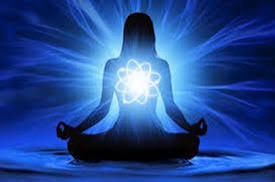Just Skip It
- bertarajayogini

- Jul 31, 2025
- 3 min read

There’s a kind of mercy in forgetting. A gift wrapped in shadows. I think of it sometimes when I watch dust rising behind an old pickup truck on a country road—it swirls, it dances, and then it’s gone. No one questions where it came from or what story it carried in its grains.
I believe we’ve lived before. Not just once, but again and again, in bodies and landscapes we don’t remember. I believe I’ve loved children who are no longer mine, buried husbands I never knew in this life, crossed continents in bare feet, and cried out for justice in languages I no longer speak. The odds are, in the thousands of lives we’ve lived, we’ve also been maimed, betrayed, exiled, drowned, silenced, starved, and burned. Terrible things have happened to us. Beautiful things, too. But we don’t remember.
And yet, we go on. Whatever happened to me in my last life—and the one before that —is gone. Like breath over glass. Perhaps the trauma is still there, somewhere in my bones, a tremor in my voice, a caution in my trust. But I don’t carry the memories. I don’t sit at my kitchen table each morning dissecting what she went through, the woman I once was. She has no name now. She lives only in the echo.
So then, I ask myself—if I’ve already forgotten the agony of so many lifetimes before this one, why do I insist on rehearsing the pain of this one so religiously?
I don’t ask this to be callous. I know what it’s like to live with the ghosts of childhood. To carry them like unwanted passengers through love and work and motherhood. I have been the child who flinched, the teenager who ran, the woman who wore her history like armor. But I’m 62 now. And I look in the mirror and see a face shaped by weather and wonder, not wounds.

I ask myself: If I am not still being hurt, why am I still holding it?
And more than that—what if healing isn’t always about returning to the scene of the injury? What if it can also be about letting the memory fade in the same way my former lives have faded—into nothing but invisible grains of who I am?
What if I could do now what I’ll do anyway in the next life—forget?
Because I will. You will. We all will. The things we cry over today, the names we whisper in therapy, the losses we carry like sacred stones—they will dissolve like sugar in rain once this life ends. Not because they weren’t real, but because they won’t matter in the way we think they do.
And so, maybe I can choose that forgetting now. Not the kind that denies or avoids, but the kind that makes room. That gives the past a kiss on the forehead and says, You can rest now.
What would happen if we just skipped the suffering part? Not because we’re ignoring it—but because we’re done with it. What if we could stand on the edge of memory and choose peace, like someone selecting a ripe fruit from the market stall?
You don’t have to keep picking through the bruised ones just because they’re familiar.

I’ve lived thousands of lives, and this one—this strange, precious, gritty one—is the only one I have any say in right now. So I’m choosing to lay the past down gently, like a coat I no longer need. I don’t need to keep wearing pain to prove I’ve healed. I don’t need to repeat the story to remember who I am.
I can just skip it.
Skip the suffering.
Skip the excavation.
Skip the endless rehearsals of a wound that no longer bleeds.
And instead, I’ll live. I’ll plant seeds, laugh too loud, write bad poems, drink tea on porches, and love people like I’ve never been left.
Because I know, deep in my marrow, that someday this life too will fade—and I’ll forget it all. So I might as well let go of what’s heavy now, before forgetting does it for me.
Choose peace instead.
Let your soul feel what it already knows.
Hari Om Tat Sat
(So be it. Let it be so.)








Comments